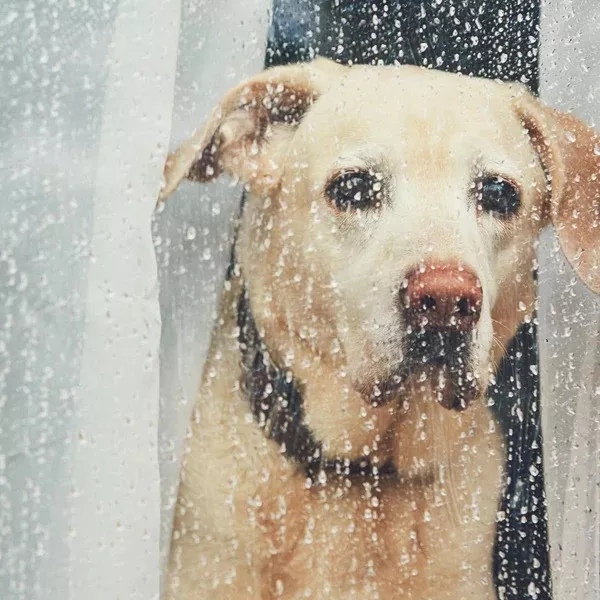As pet owners, we are responsible for ensuring the overall well-being of our furry companions.
While much attention is given to their physical health and extensive research is done as well, the mental wellness of cats and dogs often goes overlooked.
Like humans, pets can experience depression and anxiety, triggered by factors such as illness, injury, pain, or the loss of a companion. Major life changes or distressing events can also deeply affect their emotional state. Recognizing the signs of depression and anxiety in your pets is essential for providing them with the necessary care and support.
Let’s delve into the key symptoms of depression in cats and dogs to help you keep your beloved pets happy and healthy.
Alarming Signs of Depression in Cats

-
Vocal Changes
Cats express their feelings through meowing. A cat in pain may emit low, mournful yowls, while a usually chatty cat might go silent. Variations in pitch and volume can signal distress. Increased purring can also be a self-soothing mechanism. Conversely, a typically quiet cat becoming loud may indicate anxiety.
-
Body Language
A depressed cat may show signs of restlessness through its body. Ears held back, a tucked tail, and raised fur are signs of unease. Understanding your cat's body language is key to recognizing these distress signals.
-
Aggression or Fear
Sadness in cats can manifest as heightened aggression or fear. An unusually aggressive or scared cat is often anxious, reacting to stimuli with hostility or timidity.
-
Clinginess and Stranger Anxiety
Depressed cats might become clingier, constantly seeking their owner's attention. They may also exhibit increased stranger anxiety and lose interest in activities they once enjoyed, such as playing or exploring.
-
Sleep Pattern Changes
While cats typically sleep 12-16 hours a day, a depressed cat may sleep even more or change its usual napping spots.
-
Appetite Changes
Mental distress can lead to a decreased appetite. A depressed cat might eat less and lose interest in its favourite treats.
-
Housetraining Issues
A distressed cat may start urinating outside the litter box, seeking comfort in the scent of its own urine. This behaviour can occur in unusual places like bedrooms or kitchens.
-
Excessive Scratching
To relieve stress and anxiety, a cat might excessively scratch objects or its own body. This behaviour can be a sign of mental discomfort.
Signs of Depression in Dogs

-
Reduced Activity
A noticeable decline in your pet's activity levels can be a sign of depression. If they no longer show enthusiasm for play or exercise, it's time to pay attention.
-
Disinterest in Favorite Activities
Pets may lose interest in activities they once loved. Whether it's chasing a ball or playing with toys, this lack of interest is a key indicator of their mental state.
-
Changes in Eating Habits
Depressed pets often experience a significant change in their appetite. They might eat much less than usual, or sometimes not at all.
-
Increased Sleep
An increase in the amount of time your pet spends sleeping can signal depression. Excessive sleep might be their way of coping with their emotions.
-
Anxiety or Aggression
Signs of anxiety or aggression, such as sporadic howling or whining, can indicate depression. These behaviours are often expressions of their inner turmoil.
-
Excessive Licking
If your pet starts licking their paws excessively, it might be a sign of anxiety or stress. This self-soothing behaviour is common in depressed animals.
-
Flattened Ears
Flattened ears are a subtle sign that your pet is feeling uneasy or stressed. This change in body language is worth noting.
-
Withdrawal from Social Interaction
Depressed pets may interact less with other animals. If your usually sociable pet becomes isolated, it could be due to their low mood.
-
Regression in Training
A sudden regression in house training or behavioral skills can be a sign of depression. Accidents in the house or disobedience may indicate they are not feeling their best.
-
Boredom or Frustration
Pets may exhibit signs of boredom or frustration when depressed. They might become destructive or show other unusual behaviours.
-
Increased Barking or Hyperactivity
A depressed pet might bark more or become hyperactive. These behaviours can be expressions of their discomfort or unhappiness.
You can't shield your pet from all sources of distress, but there are ways to support their mental health and prevent depression.
Regular exercise and mental stimulation are key to reducing anxiety and stress in both dogs and cats. Ensure your pet gets plenty of physical activity daily, whether it's walks for your dog, interactive play for your cat, or time spent exploring the backyard. Mix up their routine by introducing new sights and smells. Mental stimulation through activities like exploring new areas, training sessions, or using puzzle feeders can also help prevent boredom and depression.









COMMENTS
Comments are moderated and generally will be posted if they are on-topic and not abusive.
For more information, please see our Comments FAQ